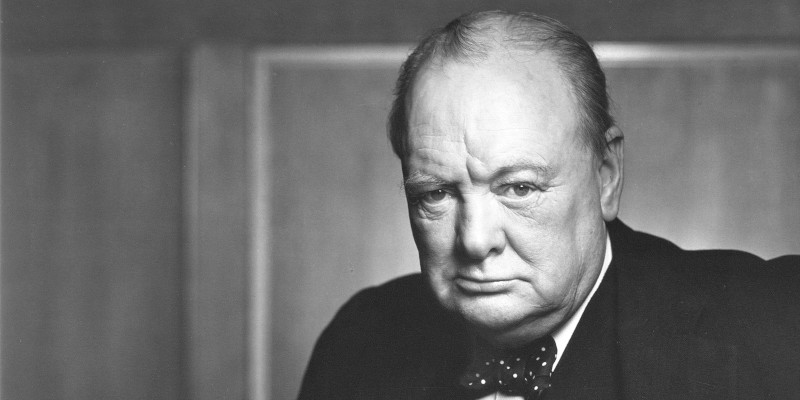How to Sound Smart
When I was lad, my grandfather, a Presbyterian minister, would forcefully complain about the speech of radio newscasters. It was not the accents that seemed to annoy him but the articulation and pronunciation.

My grandfather's complaining annoyed me. He was going against society and implying that he was right and everyone else, including myself, were wrong. Even worse, he seemed to be trying to get me to change my young northern redneck way of communicating, and if he succeeded, I would be different from my young northern redneck buddies. I now wish I had been more mature and he more forceful. Hearing valid criticism and acting on it is the way to become a better, more powerful, and more respected person.
Aim High
A professional, high quality manner of speaking is an excellent habit to develop. In addition to increasing one's prestige, good articulation and pronunciation can boost self-esteem and self-confidence. A cardiologist might be getting ten times your salary, but you can feel better about the disparity if he or she says "gonna" and you say "going to."
Before starting on a speech-improvement quest, think about the complexity of language. Speaking is a social event, and changing the rules of social events can create anti-social feelings. Some persons, similar to those who are obese due to medical conditions, do not have physical control over their conditions. The great orator Winston Churchill, for example, spoke with a lisp. And some persons are challenged with input conditions such as dyslexia.

It would be wise, therefore, to try to stay humble and to keep a low profile with what you do. Just because you occasionally sound smarter than a cardiologist does not mean that you are. And be especially careful if you want to help help other improve their speech. While in university, I witnessed a student threaten to fight another student because the latter had pointed out how many times the former said "uh" during a presentation.
One of the reasons for this sensitivity is that the rules of English are not written in stone, and English spelling often makes absolutely no sense. One could easily argue that there is not and never has been a single correct way of speaking English. For example, often is commonly pronounced without a t, but I prefer to included the t, since the word is spelled with a t. Differences within English can be very subtle. Only an old-time Presbyterian minister would likely care about the difference between absorption and absorbtion. And some mispronounced words might take on their own meanings. I might say "surup" to talk about a concoction of codeine, soft drink, and candy, but I will never put maple surup on waffles, only syrup (sear-up).
Annoying Words

Below is a list of words and a few word combinations that have annoyed me. I might be a little tightly wound, and I might have included a few you disagree with; but I will firmly write that an unbiblical cord (as I used to say) is not an umbilical cord and that if you confuse a cervix with a cervical spine, you will not sound like a brain surgeon.
- A not Uh
- Accessory not Assessory
- Acknowledge not Agknowledge
- Adjust not Ajust
- Administer not Aminster
- Administration not Aminstration
- Already not Awready
- Alright not Awright
- Alveoli not Aveoli or Aveeli
- America not Uhmerica
- American not Uhmerican
- And not An
- Antivenom not Annivenom
- Ask not Ass
- Automaticity not Automacity
- Basically not Basicly
- Circulatory not Circlatory
- Comfortable not Comferable
- Consistent not Consistan
- Defibrillator not Defibullator
- Data not Datta
- Different not Diffrent
- Dilate not Dialate
- Dissipate not Dissispitate
- Dyspnea not Dipsnea
- Epidemiology not Epideology
- Extrication not Exrication
- Every not Evry
- February not Febuary
- Finally not Finely
- For not Fer
- Going to not Gonna
- Got to not Gotta
- Government not Goverment
- Houses not Houzes
- His or her not Their
- Integral not Innergral
- Intellectually not Innellectually
- Interact not Inneract
- Interesting not Intresting
- International not Innernational
- Interpersonal not Innerpersonal
- Intervention not Innervention
- Intubation not Innubation
- Is none not Are none
- Johns Hopkins not John Hopkins
- Laboratory not Labratory
- Larynx not Larnix
- Mathematical not Mathmatical
- Musculoskeletal not Muscoskeletal
- Nasopharyngeal not Nasopharyngel
- Precise not Pracise
- Peripheral not Periphrial
- Permeable not Permable
- Pharynx not Pharnix
- Physician Assistant not Physician's Assistant
- Posterior not Possterior
- Prescribe not Perscribe
- Preventative not Prevenative
- Preventative not Preventitive
- Project not Prawject
- Respiratory not Respratory
- Resuscitation not Resescitation
- Restaurant not Restrant
- Roof not Ruff
- Said not Sed
- Says not Sez
- Separate not Seprate
- Significant not Signifigant
- Status not Stattus
- Success not Sussess
- Supraglotic not Superglotic
- The not Thee
- Temperature not Temprature
- To not Ta
- Topographic not Topagraphic
- Traumatic not Tramatic
- Understanding not Unnerstanding
- Want to not Wanna
- Was not Wuz
- Words ending with ing but pronounced with in (e.g Taking not Takin)
- Would have not Would of
Since the way we speak is largely habitual, I have found that practicing proper articulation and pronunciation during deadtime has lead to improvement. This has involved slowly repeating a troublesome word or several of them over and over (e.g. "separate, mathematical, prescription, temperature, said;" “separate, mathematical, prescription, temperature, said;" “separate, mathematical, prescription, temperature, said;" etc.)
Also try to avoid saying "uh," "like," and "you know." If you get the urge to make one of these super-annoying filler sounds, make a little click with your tongue instead until you can learn to just stop.
It is important not to expect overnight change. Habits take time to establish; bad habits take time to break. If you get hung up on the subject, you may also get hung up on your speaking and start choking, stammering, babbling, blathering, or awkwardly correcting yourself.
Keep Calm and Carry On
According to Churchill, the most important part of a speech is the person giving it, next is the way it is delivered, and last is what is said. Clear and concise language will never give you Churchill-level prestige, but it will contribute to your career and feelings of self-worth, and it can be done without costing a dime.

Focusing on good articulation and pronunciation could even lead to a speech therapy career.
